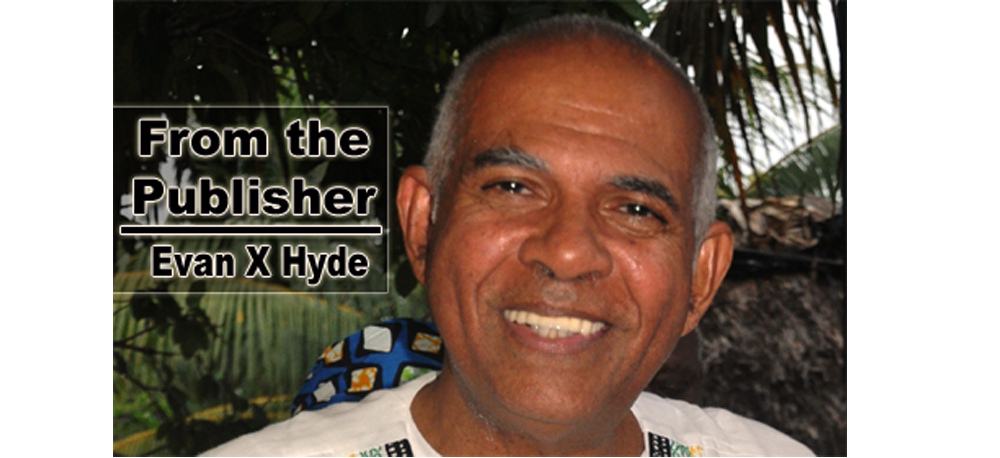Our land mass in Belize is twice the size of Jamaica’s, but Jamaica’s population is maybe four times the size of ours. In other words, Jamaica is much more crowded than Belize is, and the sociology is therefore that much more intense there than here.
I am looking at this subject because the recent decision by the Belize government to restrict the entry of Jamaicans into Belize unless they can provide proof of their ability and intention to vacation and reside here until they return home to Jamaica, is an absolutely incredible development if you knew the history of the relationship between Jamaica and Belize (British Honduras).
The government has explained that their moves are intended to frustrate human smuggling operations which are using Belize to move Jamaicans north across borders into the United States, the largest and most dynamic economy in the Western Hemisphere, and probably the world.
Remember, the 1973 Treaty of Chaguaramas signed by members of the Caribbean Community (CARICOM) allows CARICOM nationals to move freely amongst member countries (without visas and the like) for studies, work, vacation, and whatever.
The massive irony in the present attitude of the Belize government has to do with the fact that when the settlement of Belize was threatened by a naval invasion from Spanish Mexico (the Yucatan) in 1798, it was to Jamaica (its British administrators) that the settlers of Belize turned for naval/military reinforcements.
Jamaica was taken over by the British, seized from Spain, in 1655, and for centuries Jamaica was the shining light amongst British colonial possessions in the Caribbean. After Trinidad and Tobago began to develop its petroleum deposits sometime in the early/middle part of the twentieth century, Trinidad began to compete with Jamaica for bragging rights in the Caribbean Sea. But, for us in Belize, located just 600 miles from Jamaica, and very distant from Trinidad in the Eastern Caribbean (near South America), Jamaica remained the big brother it has been from the seventeenth century.
In the British Caribbean, as in the French Caribbean, a so-called buffer class developed between the ruling white slavemasters and their Black slaves. This consisted of the children of sexual relationships between the ruling whites and the oppressed Blacks, and the descendants of those children.
In Jamaica, I would say that between 8 and 10 percent of the population is buffer, or mulatto. My great grandfather on my mother’s side, George Lindo, migrated to British Honduras from Jamaica. I assume he came from the buffer, colored class.
It is interesting to note that the legendary Bob Marley was the son of a white army officer and a black Jamaican lady. Chris Blackwell, the white Jamaican who promoted Marley to international musical fame and fortune in the 1970s, was the son of a lady named Lindo. She must have come from the white Jamaican class.
When you begin to inform yourself about our part of the world, Central America and the Caribbean, it is really amazing to study the map and see how Spanish Cuba, British Jamaica, and French Haiti were placed in relation to each other. (Belize is to the west of these historic islands on the Central American mainland.)
When the African slaves in Haiti began a successful slave rebellion in 1791 and declared a free Black republic in 1804, the implications for slaveowners in the southern states of the United States were great and probably frightening. (The U.S. had only just declared their independence from Great Britain in 1776.) Remember, those were the days of sailing ships. News travelled slowly, but once news reached the Confederate American states of the slaughter of white slavemasters in Haiti, there was a movement which began in the United States to send the African slaves back to their continent of origin. This was the beginning of Liberia on the west coast of Africa in 1820 or so.
Meanwhile, in South America the one Simon Bolivar had begun a struggle to liberate Spanish colonies like Venezuela, Colombia, Peru, and Bolivia from the colonial clutches of Spain. Bolivar sought help from the new republic of Haiti, and he received same.
The United States has a history of imposing its power to exploit in the nations to its south. For instance, the U.S. seized a whole swath of territory, from Florida to California, from Mexico through military force in the middle of the nineteenth century. In Central and South America, after the U.S. declared its Monroe Doctrine in 1823, the Americans proceeded to support the growth of an oligarchical class and dominant, dictatorial families. So a huge inequality emerged between the oligarchical few and the roots many. In some cases, such as that of Guatemala in 1951 and Nicaragua in 1979, the inequality led to roots revolution. Today, that inequality is leading to a migration/ invasion of sorts from the south into the United States.
That migration/invasion has sparked a race-influenced reaction from white Americans, who are now faced with a future which may feature a non-white majority (Blacks and Mestizos) by the middle of the twenty-first century.
A message has been sent to Belize from Washington. Do not allow The Jewel to be used to facilitate migration of non-whites into America. For this reason, Belize has begun to disrespect our Jamaican and Haitian brethren and sistren. At the same time, America has reduced the Black population of Belize from clear majority to dwindling minority since 1961.
Race matters, baby.
White Americans, who butchered the Native Americans to gain power and territory in the eighteenth and the nineteenth centuries, have turned to Donald Trump to lead white power resistance and resurgence. All of them are buying assault rifles and other weapons. Belizeans in the American diaspora should make sure to sleep with their own eyes. You don’t need artificial intelligence to see which way this wind is blowing.

